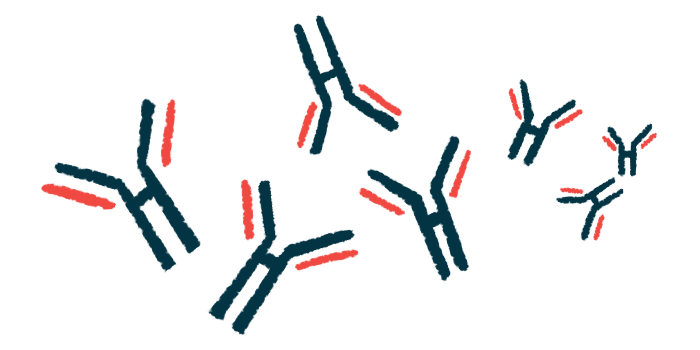Non-antibiotic CMTX-101 reduces lung bacteria in cystic fibrosis
Study found treatment to be safe and well tolerated also
Written by |

Adding the experimental treatment CMTX-101 to standard antibiotics reduced the number of Pseudomonas aeruginosa — a type of bacteria often involved in serious infections — in the lungs of people with cystic fibrosis (CF), while also being safe and well tolerated.
These are interim findings from 21 patients in a Phase 1b/2a clinical study (NCT06159725) that’s testing how safe CMTX-101 is compared with a placebo and how well it works as a single infusion into a vein, or intravenously, on top of standard antibiotics.
An independent data monitoring committee concluded, based on the findings, that it was safe to continue the study at two tested doses — 5 and 30 milligrams per kilogram of body weight — without any modifications to its protocol.
“We are pleased that the findings from the first 21 participants enrolled support progressing the study without modification,” David V. Richards, CEO at Clarametyx Biosciences, which is developing CMTX-101, said in a company press release.
The study’s next portion will test both doses in about 20 more adults with a confirmed diagnosis of CF. The participants in this trial who are on CFTR modulators need to be on a stable dose for at least three months. The company expects to finish enrolling at 23 locations across the U.S by the end of this year.
“The full dataset, which will include exploratory endpoints such as respiratory function, inflammatory biomarkers, and quality of life assessments, will help us further understand the full potential of CMTX-101 as a novel therapeutic solution to a variety of chronic respiratory conditions,” Richards said.
In CF, thick mucus builds up in the airways, creating a breeding ground for bacteria and other microorganisms. Ongoing or frequent lung infections are one of the disease’s respiratory symptoms.
Bacteria often form biofilms — protective layers that shield them from antibiotics and make infections more difficult to treat. Over time, some bacteria, such as P. aeruginosa, also become resistant to standard antibiotics.
Testing CMTX-101
CMTX-101 is an antibody that’s designed to target and remove important proteins that hold biofilms together, causing them to break apart. This should help the immune system clear infections more effectively and make bacteria more susceptible to standard antibiotics.
Following completion of Phase 1b of the ongoing study, 21 patients testing positive for P. aeruginosa in a sample of sputum, or phlegm, were randomly assigned to receive either CMTX-101 or a placebo on top of inhaled antibiotics — either tobramycin or aztreonam — either alone or as a combination treatment.
No safety issues were reported after a single intravenous infusion of CMTX-101 and no participants developed anti-drug antibodies, which can limit how well a treatment works. CMTX-101 was present in the sputum of all participants, showing it can reach the site of infections.
“Interim findings from this study have identified encouraging trends that support the potential benefit of CMTX-101, with no safety issues,” said Jerry Nick, MD, a professor at National Jewish Health and the study’s principal investigator. “The next portion of the trial will provide important insights on the potential therapeutic impact of CMTX-101 for the CF population as a novel solution to reduce the burden of chronic infections.”
The study is supported by the Cystic Fibrosis Therapeutics Development Network.
“We extend our gratitude to the Cystic Fibrosis Therapeutics Development Network, clinical investigators, and the participants and families for their continued participation in this important research,” Richards said.







